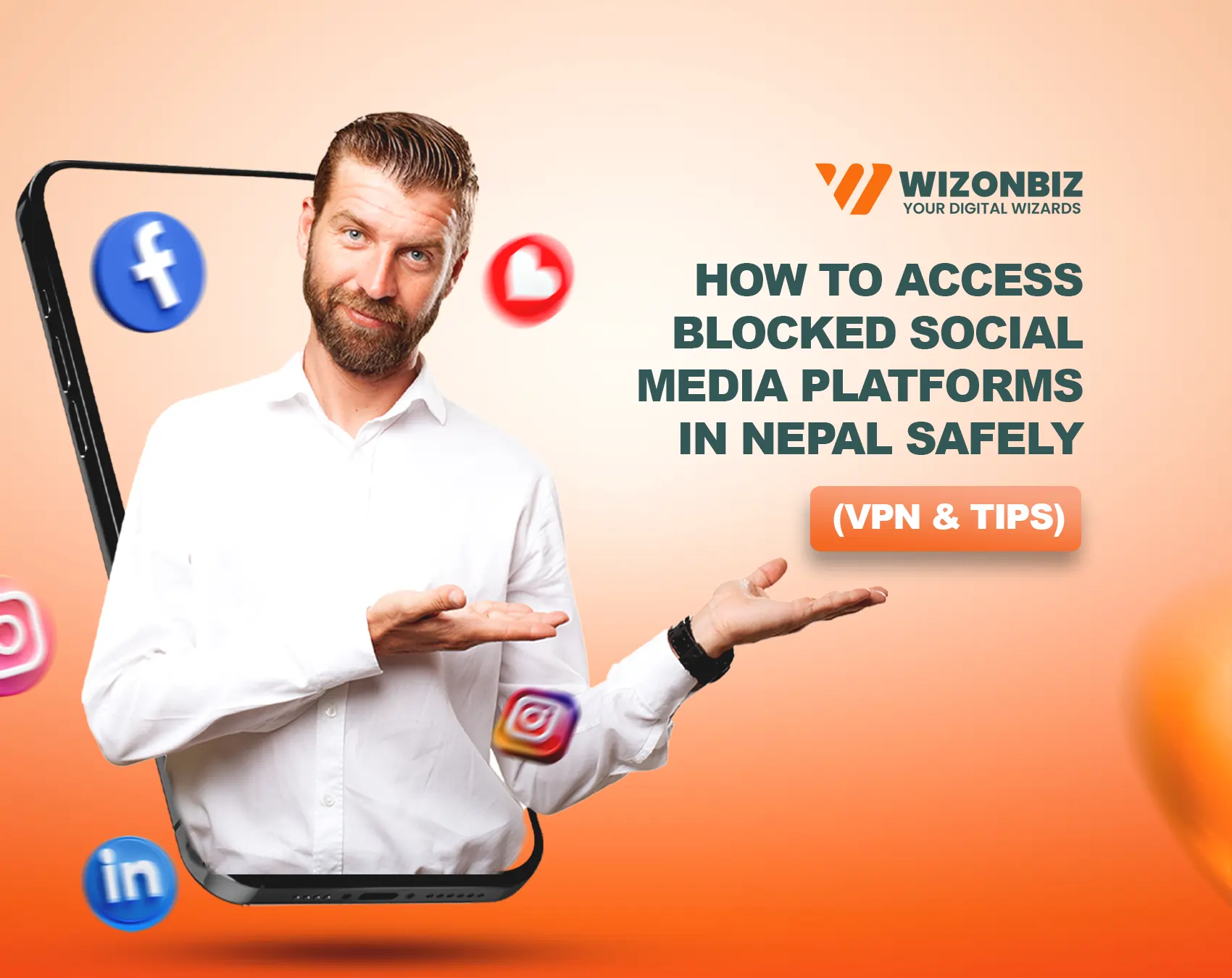How to Use VPN in Nepal to Access Blocked Social Media: Complete Guide
In 2025, many Nepali users have been affected by social media banned in Nepal, including platforms like Facebook, Instagram, X (formerly Twitter), and Hamro Patro and many more. Whether for work, education, or staying in touch with friends and family, these restrictions have caused major disruptions.
If you’re wondering how to access blocked platforms safely and protect your privacy, this guide provides a complete solution. You’ll learn how to use VPNs, stay secure, and follow legal guidelines while accessing social media.
Why Social Media Is Being Banned in Nepal
Nepal has implemented social media bans for several reasons:
- Regulatory Compliance: Platforms like Facebook, X, and Instagram must register under Nepal’s IT regulations. Those failing to comply face temporary or permanent restrictions.
- Preventing Misinformation: Authorities aim to reduce fake news and harmful content that spreads rapidly through social media.
- Cybersecurity and Privacy: Ensuring data safety for Nepali users is a key reason for blocking unregistered platforms.
Affected platforms include: Facebook, Instagram, X, Hamro Patro, and other foreign apps that haven’t met local requirements.
Note: Staying updated on Nepal social media news today is crucial for understanding which platforms are restricted and when.
What is a VPN?
A VPN (Virtual Private Network) allows you to access blocked social media by encrypting your internet connection and masking your IP address.
Benefits of Using a VPN:
- Bypass Geographic Restrictions: Access platforms that are blocked in Nepal.
- Protect Your Privacy: Encrypts your internet traffic to prevent hackers from monitoring your activity.
- Secure Connections: Especially important on public Wi-Fi networks.
Using a VPN is legal in Nepal if used responsibly and not for illegal purposes.
How to Use VPN in Nepal to Access Blocked Social Media
Here’s how to regain access to your favorite social media platforms safely:
Step 1: Choose a Reliable VPN
Select a VPN known for privacy, speed, and reliability. Popular options include:
- ExpressVPN – Fast and secure, supports multiple devices.
- NordVPN – High security and thousands of servers worldwide.
- Surfshark – Affordable, user-friendly, and effective.
- ProtonVPN – Free and secure option with strong privacy.
Step 2: Install the VPN
- Mobile: Download from the App Store or Google Play.
- Desktop: Install from the official website of the VPN provider.
Avoid third-party downloads to prevent malware or compromised versions.
Step 3: Connect to a Server Outside Nepal
- Open the VPN and select a server in a country where social media is not restricted, such as the USA or India.
- For faster speed, choose a server geographically closer to Nepal.
Step 4: Access Social Media Platforms
- Open Facebook, Instagram, X, or Hamro Patro.
- Ensure your VPN connection is active to maintain access.
- Avoid public Wi-Fi without VPN protection.
Step 5: Optimize Performance and Security
- Enable the kill switch in your VPN to prevent data leaks.
- Clear your browser cache before logging in for the first time with a VPN.
- Avoid switching servers frequently to prevent triggering security alerts.
Safety Tips for Using VPNs in Nepal
- Stick to Trusted VPN Providers: Avoid unknown or free VPNs with poor privacy policies.
- Enable Two-Factor Authentication: Adds extra security to your social media accounts.
- Avoid Suspicious Links: Protect your accounts from phishing attempts.
- Keep VPN Software Updated: Security vulnerabilities can be exploited if outdated.
- Follow Legal Guidelines: VPNs are legal for privacy but do not use them for illegal activities.
Additional Tips for a Better Experience
- Use Mobile Data Instead of Wi-Fi: Public Wi-Fi may be less secure even with VPN.
- Log Out When Not in Use: Helps prevent accidental account suspension.
- Use Lightweight Apps: Facebook Lite or Instagram Lite apps consume less data and work faster with VPNs.
- Stay Informed: Subscribe to updates for Nepal social media news today to track which platforms are affected.
Conclusion
Dealing with social media banned in Nepal can be frustrating, but using trusted VPNs, following safety precautions, and staying informed can help you regain access safely. Remember to use VPNs responsibly, protect your accounts, and keep track of official updates to ensure smooth and uninterrupted social media usage in 2025.
Share this comprehensive guide with friends and family to help them safely access blocked social media platforms in Nepal.
Frequently Asked Questions (Q&A)
1. Why is social media banned in Nepal?
Facebook, Instagram, X, and other platforms may be restricted due to non-registration, failure to comply with Nepalese IT laws, or content violations.
2. How can I safely access Facebook, Instagram, and X after the ban?
Use a trusted VPN, connect to a server outside Nepal, and log in securely to access blocked social media safely.
3. Is it legal to use a VPN in Nepal?
Yes, using a VPN for privacy and accessing legally allowed content is permitted in Nepal. Avoid illegal activities.
4. Why is Facebook not working today in Nepal?
Temporary blocks occur when platforms are under review or fail to comply with Nepalese regulations.
5. How can I avoid Facebook account suspension while using VPNs?
- Use a consistent VPN server location.
- Follow community guidelines.
- Avoid automated scripts or suspicious activity.
6. Is Hamro Patro affected by social media bans?
Yes, Hamro Patro may face temporary restrictions, but VPNs can help restore access safely.
7. Which VPNs are safest to use in Nepal?
ExpressVPN, NordVPN, Surfshark, and ProtonVPN are recommended for speed, security, and reliability.
8. Can social media bans be lifted soon in Nepal?
Regulations are updated periodically; staying informed via official announcements and trusted news sources is key.
9. Are there free alternatives to blocked social media platforms?
Signal, Telegram, and local forums can be alternatives, though their reach may be limited.
10. How to stay updated with social media news in Nepal?
Follow official news channels, YouTube updates, and registered local social media accounts for real-time updates.

